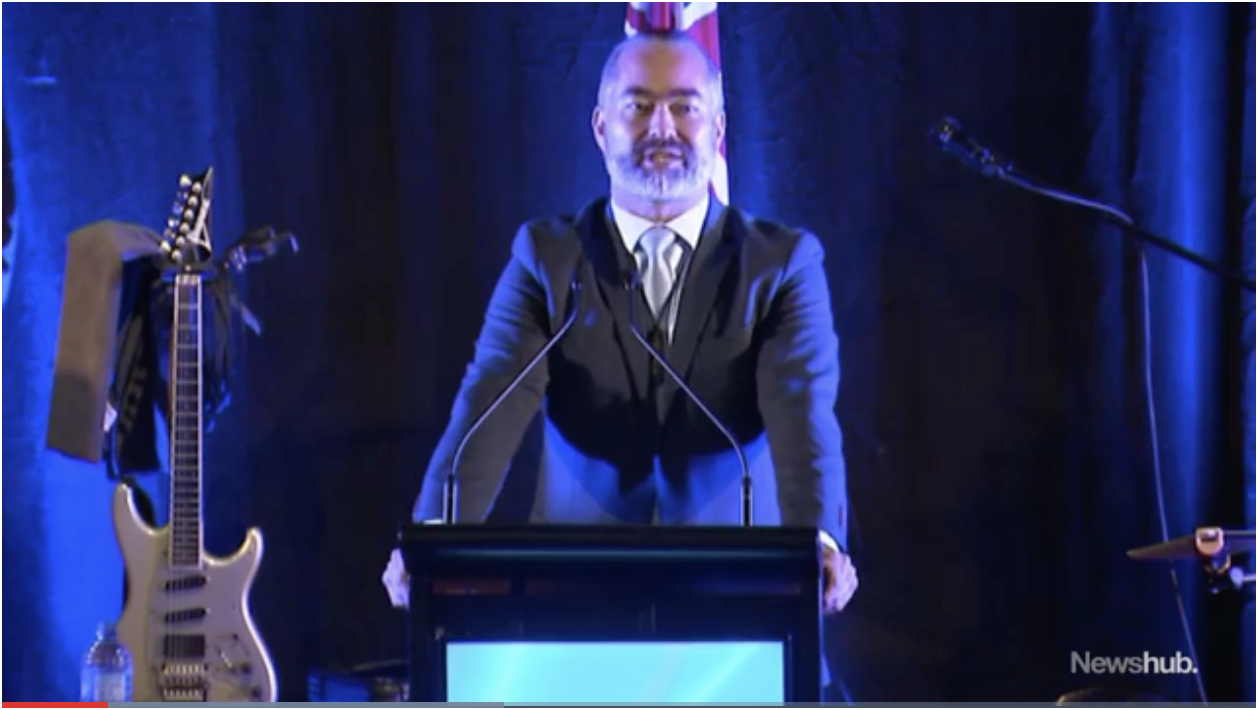Thornton Blackmore
“Jump aboard this waka” is the party line among supporters for what has become New Zealand’s fastest-growing political party.
Advance New Zealand Co-Leader Billy Te Kahika, who is contesting Labour Party Deputy Leader Kelvin Davis’s seat in the Te Tai Tokerau electorate, has already been polled by Colmar Brunton coming in third equal with Winston Peters and Christopher Luxon on 1% in New Zealand’s most preferred Prime Minister poll – an astonishing feat for a movement that is only a few months old.
Indeed, ever since the announcement of the New Zealand Public Party’s alliance under the Advance New Zealand banner at their campaign launch at the Logan Campbell Centre in July, the media menagerie have been trying to make sense of it all.
At a time when cancel culture and social unrest began simmering overseas, everyday New Zealanders began devising their own unique solution to voice their concerns over the blatant mishandling of the health crisis and the erosion of political freedoms.
In typical Kiwi fashion, they did something legendary – they built themselves a waka.
This proverbial waka is a movement which first took wind on the sails of social media, and which gathered support from all corners of the nation – regardless of race, religion, gender or income bracket. Te Kahika, who describes himself as a reluctant politician, soon found himself at the helm of a people’s movement that continued to grow beyond all expectations.
Electoral conditions stipulate that in order to stand for election, a party must secure at least five hundred and fifty registered members. Speaking of the party’s record-shattering momentum, Te Kahika has remarked “Normally, I’m told it can take weeks, it could take months, it could take a year for you to get your five hundred and fifty registered members. We did it in two days.” and that “We average a thousand new members a week since the day that we started. We average one to two hundred new members a day.”
But it is a movement that very nearly wasn’t.
Despite a historic effort, the New Zealand Public Party had already missed the cut-off date for party registration ahead of the 2020 election. But Te Kahika, who was in negotiations with other minor parties at the time, urged the movement forward regardless. What they needed was a lifeline.
Speaking at the Logan Campbell Centre, former National Party MP Jami-Lee Ross spoke of his encounter with Te Kahika, “I was looking at the political landscape and deciding where to head. I was building support and membership towards a new political party, Advance New Zealand. But everywhere I went, I kept finding people on Facebook and Twitter who kept messaging me “Have you seen this guy’s videos? Have you seen what he’s been saying?”
Ross is best known in Parliament for walking away from the National Party in 2018 after exposing a culture of corruption within the party. Ross has released evidence suggesting that former National Party leader Simon Bridges was prepared to ‘sell’ a seat on the party bench in exchange for a $100,000 donation from influential business magnate Zhang Yikun. He has also shed light on donations to the party from Chinese Communist Party sources.
Ross endured a volley of fire from the political establishment in the wake of whistleblowing, before returning to Parliament as an independent MP with fresh wounds and open eyes. In a recent interview on Maori Television, he commented that “once you leave a cult, you understand exactly how bad it is”.
In what has been touted by commentators as a “rebel alliance”, Ross threw a lifeline to Te Kahika, pulling the momentum and support base of the New Zealand Public Party aboard his already registered party, Advance New Zealand. Ross has likened the party to a centrist version of the Alliance Party of the 1990s, which was formed by several minor parties in order to magnify the voice of their constituents.
Several other parties have also registered themselves with the alliance ahead of the 2020 election, including Direct Democracy New Zealand, Reset New Zealand and the migrant-led New Zealand People’s Party.
Speaking of the New Zealand People’s Party’s contribution, Te Kahika has remarked that “this party is full of people that care deeply about our country, there’s a lot of Chinese involved that are absolutely scared that New Zealand is fast becoming like Communist China and they want to stand up against it”.
These are concerns which have been heightened following the suspicious deaths of two high-profile members of the New Zealand Chinese community in July while en route to Wellington. The activists were allegedly trying to petition the government over concerns about the Chinese Communist Party’s interference within New Zealand.
While many of the claims made by mainstream commentators about Te Kahika and his supporters have been speculative to say the least, it is all water off a duck’s back for the reluctant politician.
Indeed, the barking of the commentariat seems to be falling on increasingly deaf and disillusioned ears. At this rate, it may not only be the Parliamentarians who find themselves out of work post- election.
Far from being a career politician, Te Kahika, who has been a pastor, farmer, soldier, musician, business owner and family man, has referred to himself as a “servant” of the movement which has gathered around him. To his supporters, Te Kahika exudes a chief-like quality of statesmanship which is rarely found in politicians today.
Simply put, it is called mana.
Indeed, thousands of supporters from all over the country flocked to Auckland’s Aotea Square for the recent National Rally for Freedom sponsored by Advance New Zealand – despite barely a week’s notice. How many other politicians can pull that off?
This is what grassroots democracy looks like.
If you enjoyed this BFD article please share it.

